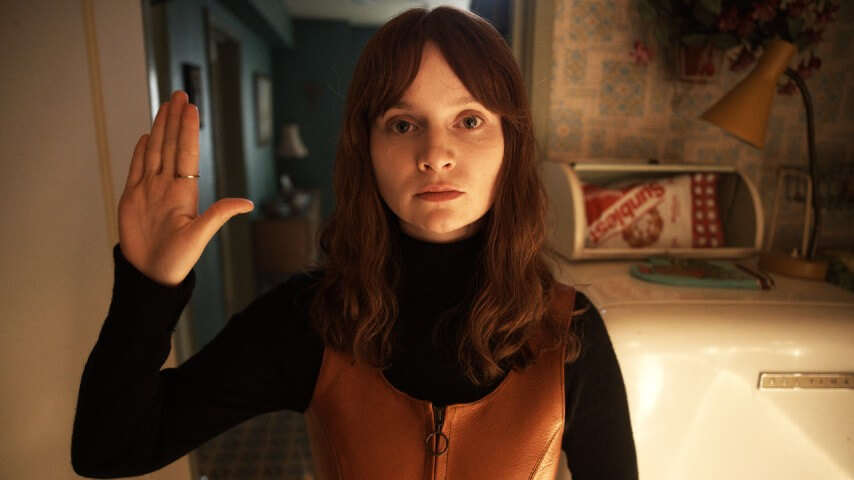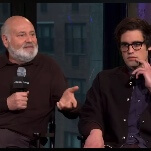Say Nothing is a high-octane, elegiac account of The Troubles
FX brings Patrick Radden Keefe’s masterful book to the small screen.
Lola Petticrew as Dolours Price (Photo: Rob Youngson/FX)
The trouble with adapting a book like Say Nothing: A True Story Of Murder And Memory In Northern Ireland has to do, for one, with scope. “Say Nothing is based on four years of research, seven trips to Northern Ireland, and interviews with more than one hundred people,” Patrick Radden Keefe writes to open his book’s 100 pages of notes on sources (which are then followed by a lengthy selected bibliography). Can a TV adaptation—in this case, one by FX, a network in the midst of quite the year, having brought us both a sprawling, big-budget epic in the form of Shōgun as well as a delightful little surprise with the workplace comedy English Teacher—capture the breadth of all of that research? And even if it can, does that make for compelling dramatic television, the kind that will hook you over the show’s nine 40ish-minute episodes, the sort that will keep you invested in the fates of these players while never losing sight of the bigger-picture politics at play?
Which leads to another hurdle with adapting Say Nothing: Keefe, who is one of the show’s executive producers as well as a staff writer for The New Yorker, is not only able to make this account of The Troubles feel at once very personal, with specific strategies and colorful details that suck you right in as a reader, and yet somehow expansive. He also makes it thrilling to behold, with the book coming off at points like a gripping page-turner that just so happens to also be an illuminating history lesson steeped in tragedy. It’s all, in other words, a lot for a show to take on and live up to.
To pull off these herculean tasks—the scope and, for lack of a more delicate and respectful phrasing, thrills—Say Nothing the show presents things essentially through the lenses of two central characters: Dolours Price and Brendan Hughes, key players for the IRA dating back to the early 1970s who, in the 2000s, sit down for interviews for The Belfast Project, an oral history on The Troubles from Boston College that promises not to divulge any accounts until after that particular participant’s death. (Lola Petticrew and Maxine Peake portray the young and older Price, while Anthony Boyle and Tom Vaughan-Lawlor do the same for Hughes.)
But Price is really the focus here, as her story is never pushed to the background even when her involvement in the IRA itself dwindles or vanishes. If this show has a protagonist, it’s her. (It’s no coincidence that the photograph of her face, with her turtleneck pulled up to just under her eyes, graced the book’s cover and was recreated for the show’s promotional art.) She and her sister Marian (Hazel Doupe) were essentially born into the cause, living in the “shite” (read: Catholic) part of Belfast under the same roof as their aunt (Eileen Walsh), whose eyes and hands were blown off by an explosive, father (Stuart Graham), a proud former IRA member, and mother (Kerri Quinn), who, like many women of her time, didn’t actively carry out operations but supported the mission through, say, burying guns in her back garden.






















![HBO teases new Euphoria, Larry David, and much more in 2026 sizzle reel [Updated]](https://img.pastemagazine.com/wp-content/avuploads/2025/12/12100344/MixCollage-12-Dec-2025-09-56-AM-9137.jpg)

















